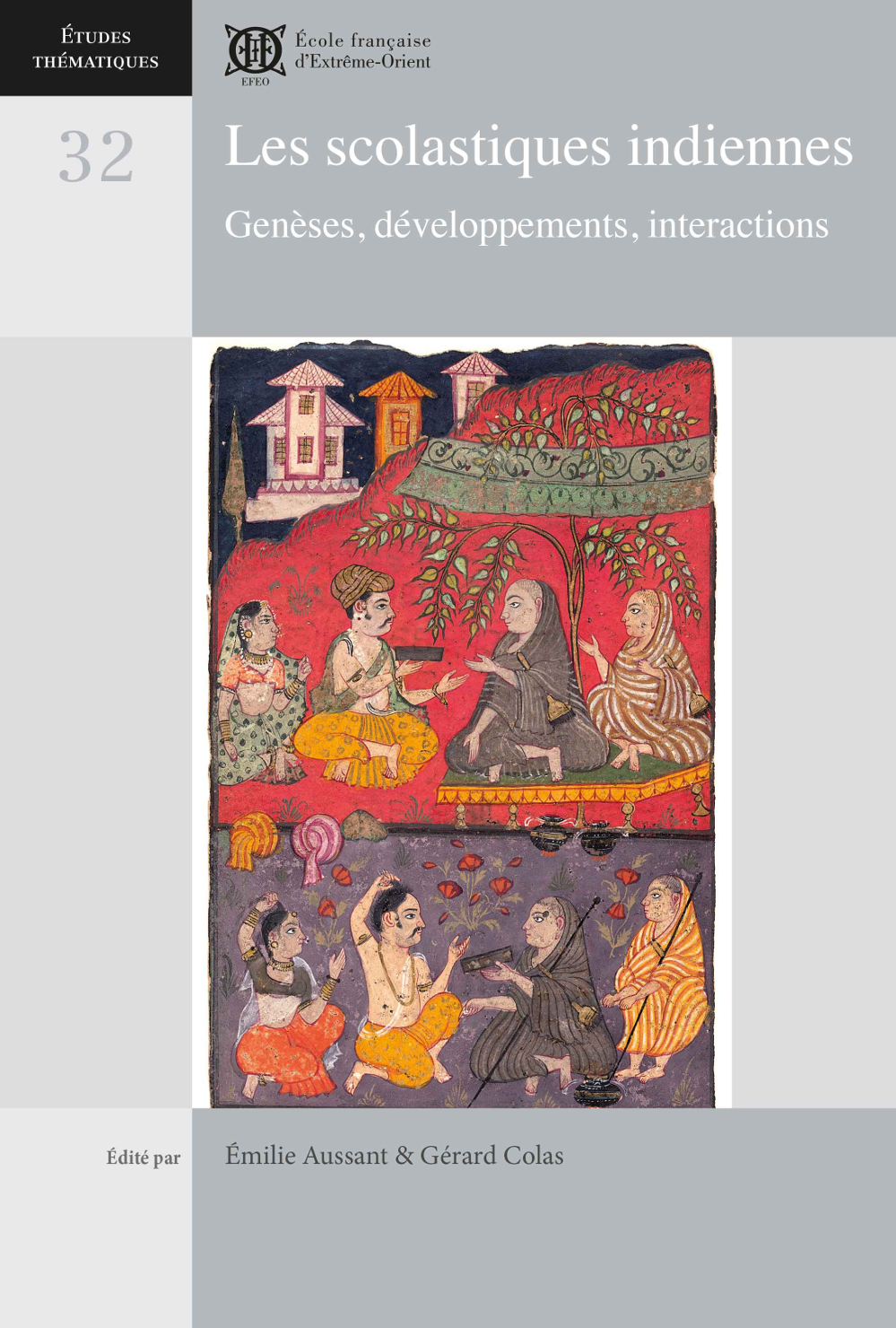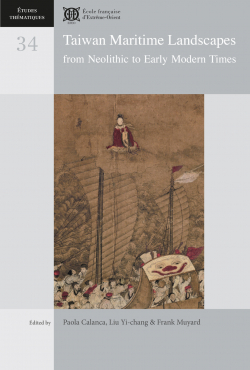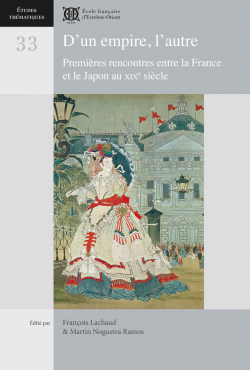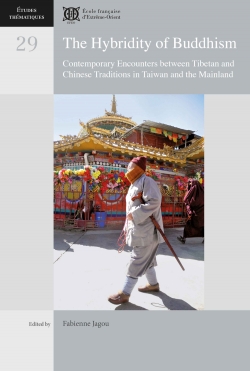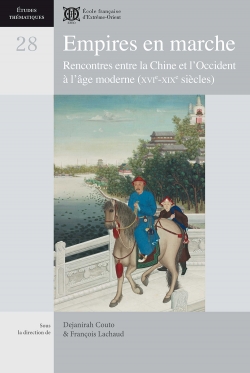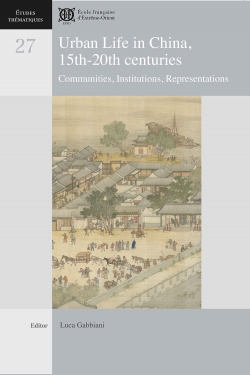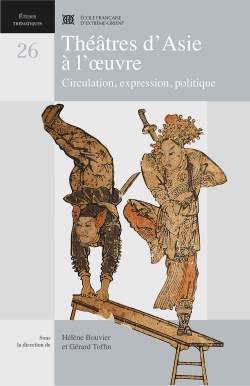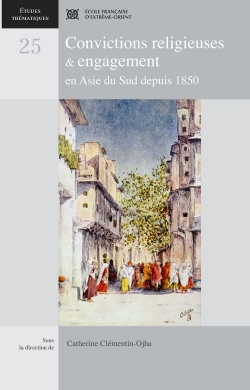The catalog of EFEO Publications includes works on a wide range of disciplines in the humanities and social sciences (archaeology, history, anthropology, literature, philology, etc.), centered on Asia, from India to Japan.
These publications address both specialists, and a wider public interested in Asian civilizations and societies.
Les scolastiques indiennes
Genèses, développements, interactions
Collection : Études thématiques
Collection's number: 32
Editor: Colas (Gérard), Aussant (Emilie)
Edition: EFEO
Publication date: 2021
Status : Available
40,00 €
ISBN-13 : 9782855392707
ISSN : 1269-8067
Width : 18.5 cm
Height : 27.5 cm
Weight : 1.01 kg
Number of pages : 326
Distributor : EFEO Diffusion
Geography : India
Language : French, English
Place : Paris
Support : Papier
Description :
18.5 x 27.5 cm, 326 p., Ill., abstract, English & French
Abstract
The modern study of Indian intellectual disciplines has often forced them into a Western disciplinary taxonomy. The analogies introduced by this taxonomy, the objectivity of which is largely illusory, are sometimes misleading, and rely on Western intellectual techniques which are themselves unavoidably historical. Resorting to such Western categories as “indology”, “philosophy” and “reason”, but also to Indian ones like “śāstra” inevitably raises theoretical objections. This volume uses “scholasticism” in a broad sense, not in the medieval conception of the term. Its aim is to shed new light on the relationship between Indian scholastic practices and the emergence of systems, their crises and aporias, as well as on scholastics’ limited apprehension of facts and their problematic dialectics with concrete practices. The contributions illustrating these questions here relate to techniques of exegesis and debate, doctrines, grammar, law, ritual, poetics and astronomy.
Table of contents
About the collection
Études thématiques
Authors who would like to submit drafts are asked to follow these instructions, download : Feuille de style [PDF 602 Ko].
About the editor
Colas (Gérard)
Gérard Colas is Emeritus Senior Fellow at the French National Centre for Scientific Research as well as a member of the (French) Center for South Asian Studies (CNRS-EHESS). The topics of his PhD and D. Litt. dissertations (both published) were respectively Sanskrit texts of architecture and the Sanskrit corpus of the Vaikhānasa Vaiṣṇavas. He is presently studying paleography, Christian texts in Indian languages (18th c.) and Indian epistemologies, especially in connection with religion (for a recent bibliographical list, see http://ceias.ehess.fr/docannexe/ file/3770/colas_g_liste_de_productions.pdf).
Aussant (Emilie)
Émilie Aussant is a CNRS researcher, member of the team “histoire des théories linguistiques” (UMR 7597 CNRS, Université de Paris, université de la Sorbonne Nouvelle) she was the head of for five years. Her works are about the history of linguistic ideas and theories of ancient Sanskrit-speaking India. Émilie Aussant has published Le nom propre en Inde. Considérations sur le mécanisme référentiel (Lyon, ENS Éditions, 2009) and La traduction dans l’histoire des idées linguistiques. Représentations et pratiques (Paris, Geuthner, 2015), among others.
Related books
Études thématiques
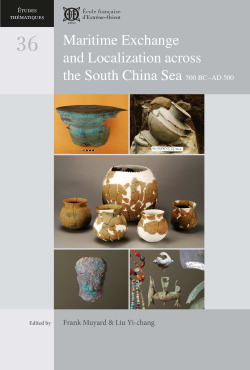
Maritime Exchange and Localization across the South China Sea
Bérénice BELLINA, Aude FAVEREAU, LÂM Thị Mỹ Dung, YAMAGATA Mariko, Frank MUYARD, LIU Yi-chang, Krisztina KINGA HOPPÁL, Stephen CHIA MING SOON, SHIUNG Chung-ching, MIYAMA Emily, CHAO Chin-yung, CHUNG Kuo-feng, WANG Kuan-Wen, Caroline JACKSON, LIU Jiun-Yu
40,00 €
2025
• Available
Études thématiques
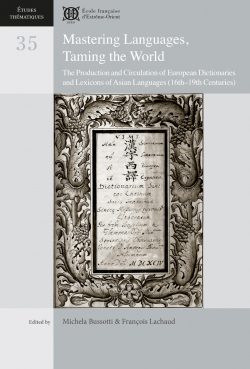
Mastering Languages, Taming the World
Michela BUSSOTTI, François LACHAUD, Dejanirah COUTO, Rui Manuel LOUREIRO, KISHIMOTO Emi, ŌSHIMA Mikio, Henning KLÖTER, Hans-Jörg DÖHLA, María Teresa GONZÁLEZ LINAJE, YANG Huiling, Mariarosaria GIANNINOTO, Eugenio MENEGON, Mårten SÖDERBLOM SAARELA, YOSHIKAWA Masayuki
40,00 €
2023
• Available
Études thématiques
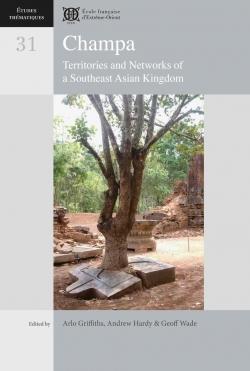
Champa
Andrew HARDY, Arlo GRIFFITHS, Pierre BAPTISTE, Amandine LEPOUTRE, William A. SOUTHWORTH, Geoff WADE, LÂM Thị Mỹ Dung, YAMAGATA Mariko, NGUYỄN Kim Dung, BÙI Chí Hoàng, Federico BAROCCO, NGUYỄN Tiến Đông, Thérèse GUYOT-BECKER, Anton O. ZAKHAROV, Mara LANDONI, John K. WHITMORE, Marc BRUNELLE, Stephen A. MURPHY, TRẦN Kỳ Phương, Parul Pandya DHAR
40,00 €
2019
• Available
Études thématiques
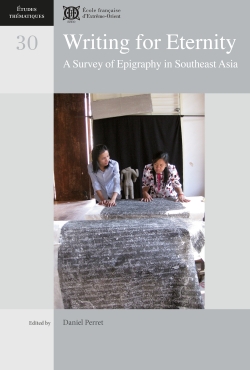
Writing for Eternity
Daniel PERRET, Claude GUILLOT, Ludvik KALUS, Philippe PAPIN, Claudine SALMON , Jacques P. LEIDER, Michel LORRILLARD, Arlo GRIFFITHS, Dominique SOUTIF, Julia ESTEVE, Peter SKILLING, Hadi SIDOMULYO, Tilman FRASCH, Kyaw Minn HTIN, Marek BUCHMANN, Christian BAUER, Titi Surti NASTITI, Roderick ORLINA
40,00 €
2018
• Available
Études thématiques
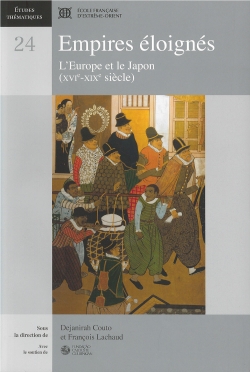
Empires éloignés. L'Europe et le Japon (XVIe-XIXe siècle)
Benoît JACQUET, François LACHAUD, Frédéric GIRARD, Dejanirah COUTO, Rui Manuel LOUREIRO, Jean-Noël ROBERT, José Miguel PINTO DOS SANTOS, TAKAHASHI Hiromi, João Paulo OLIVEIRA E COSTA, Juan GIL, Annick HORIUCHI, Michel WASSERMAN, Alexandra CURVELO, Nuno VASSALO E SILVA, Cynthia VIALLE, SUZUKI Hiroyuki
50,00 €
2010
• Available
